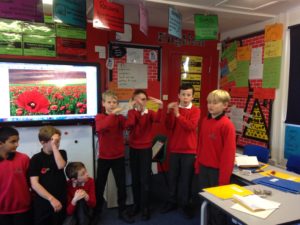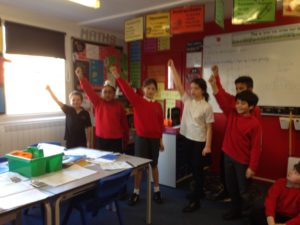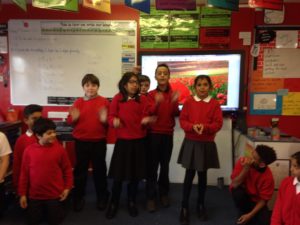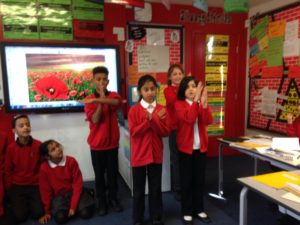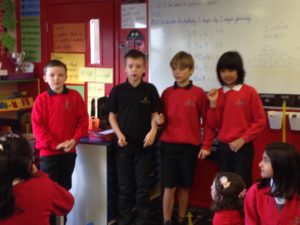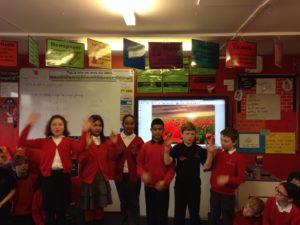This morning, as part of STEM week, we were lucky to have a visitor who taught us how to code robots. In groups we were given a car and a computer and by the end of the session each group had programmed their robot to move in a variety of ways.
It was really exciting and we learnt lots about computer coding, science, maths and working with others.
Ask your child if they can figure out what this robot would do.
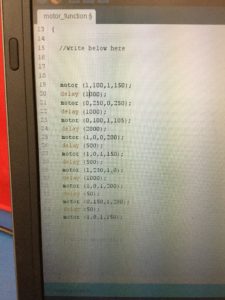 Hint: the number ‘1’ = forwards mode.
Hint: the number ‘1’ = forwards mode.
We learnt that coding can be quite frustrating – one tiny mistake in your script can mean that your robot does nothing. However, we did enjoy de-bugging (finding the errors) our scripts to ensure they worked.
Computing can be a scary topic for some adults (most of us aren’t part of the coding generation like Y5) but there are some great online resources that can help. A particular favourite of mine is Barefoot Computing. It’s free and links closely to the National Curriculum. Although it’s aimed at teachers, it will be beneficial for everyone because the website is also easy to navigate and understand.
Here’s some pics of us coding our robots…

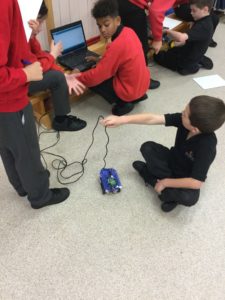


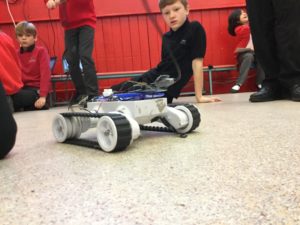

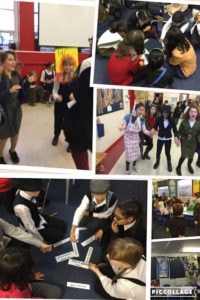
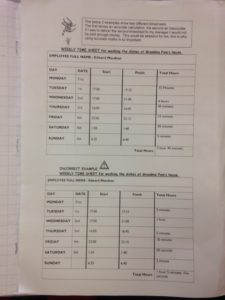 Edward’s pot-washing time sheet.
Edward’s pot-washing time sheet.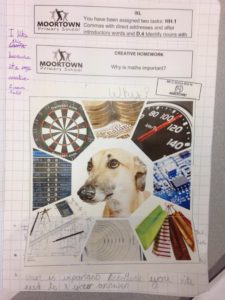 Sam’s collage of maths in everyday life.
Sam’s collage of maths in everyday life.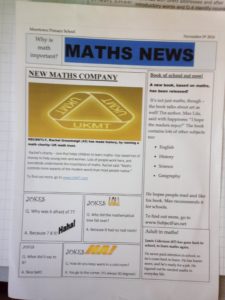 Pippa’s news report – love the jokes, Pippa!
Pippa’s news report – love the jokes, Pippa!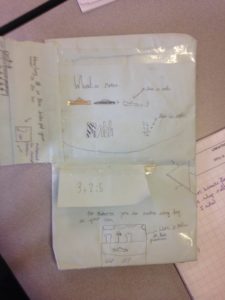 Megan’s maths game.
Megan’s maths game.